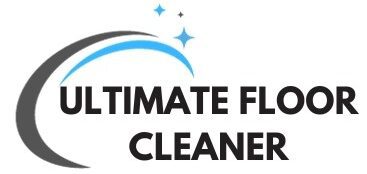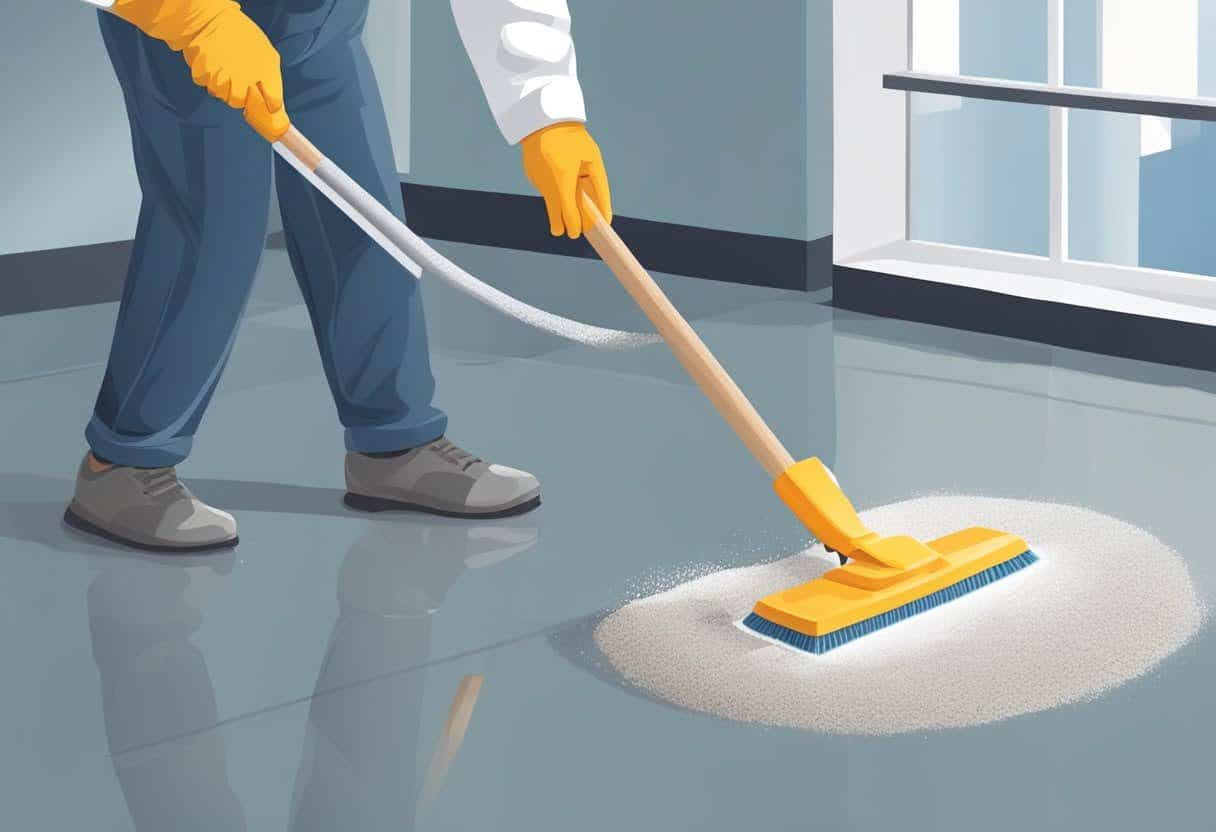If you have concrete floors, you know how difficult it can be to keep them clean. Dirt, oil, and other stains can quickly accumulate and become embedded in the porous surface, making it nearly impossible to remove with traditional cleaning methods. That’s where concrete floor cleaner comes in.
Concrete floor cleaner is a specially formulated solution designed to penetrate deep into the pores of concrete floors to lift and remove even the toughest stains. Whether you have a garage, workshop, or industrial space, this type of cleaner can help you maintain a clean and safe environment. By using a concrete floor cleaner regularly, you can extend the life of your floors and prevent costly repairs down the line.
When choosing a concrete floor cleaner, it’s important to consider factors such as the type of stains you’re dealing with, the size of the area you need to clean, and the type of equipment you have available. With the right cleaner and a little bit of elbow grease, you can keep your concrete floors looking like new for years to come.
Types of Concrete Floor Cleaners
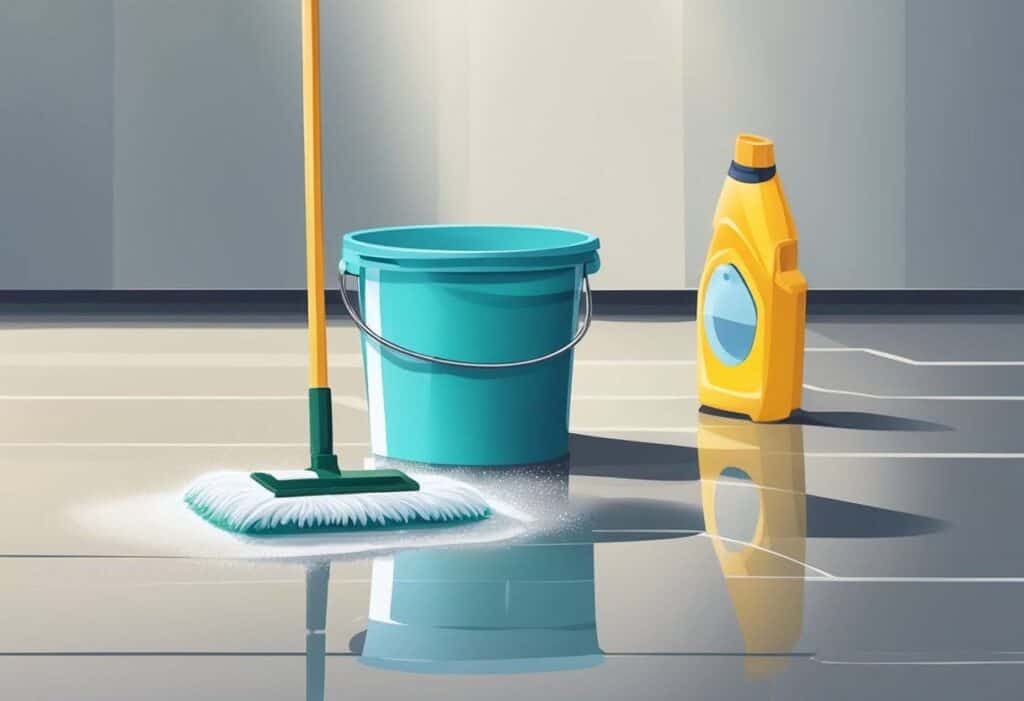
When it comes to cleaning concrete floors, there are several types of cleaners available. Each type of cleaner has its own unique properties, and it’s important to choose the right one for your specific needs. Here are the most common types of concrete floor cleaners:
pH-Neutral Cleaners
pH-neutral cleaners are the most common type of concrete floor cleaner. They are effective at removing dirt and grime without damaging the surface of the concrete. pH-neutral cleaners are safe to use on all types of concrete floors, including polished and stained concrete. These cleaners are typically water-based and contain surfactants that help to lift dirt and grime from the surface of the concrete.
Acidic Cleaners
Acidic cleaners are designed to remove tough stains and discolorations from concrete floors. They are particularly effective at removing rust, oil, and grease stains. Acidic cleaners work by breaking down the chemical bonds that hold the stain to the concrete surface. However, they can be harsh on the concrete and should only be used on unsealed floors. It’s important to wear protective gear when using acidic cleaners, and to rinse the floor thoroughly after cleaning.
Alkaline Cleaners
Alkaline cleaners are similar to acidic cleaners, but they have a higher pH level. They are effective at removing grease and oil stains, as well as dirt and grime. Alkaline cleaners work by breaking down the dirt and grime, making it easier to remove from the surface of the concrete. However, like acidic cleaners, they can be harsh on the concrete and should only be used on unsealed floors. It’s important to wear protective gear when using alkaline cleaners, and to rinse the floor thoroughly after cleaning.
Enzymatic/Bacterial Cleaners
Enzymatic/bacterial cleaners are a newer type of concrete floor cleaner that use natural enzymes and bacteria to break down dirt and grime. They are safe to use on all types of concrete floors, and are particularly effective at removing organic stains such as food and drink spills. Enzymatic/bacterial cleaners are environmentally friendly and do not contain harsh chemicals. They work by breaking down the dirt and grime at a molecular level, making it easier to remove from the surface of the concrete.
Preparation and Safety Measures
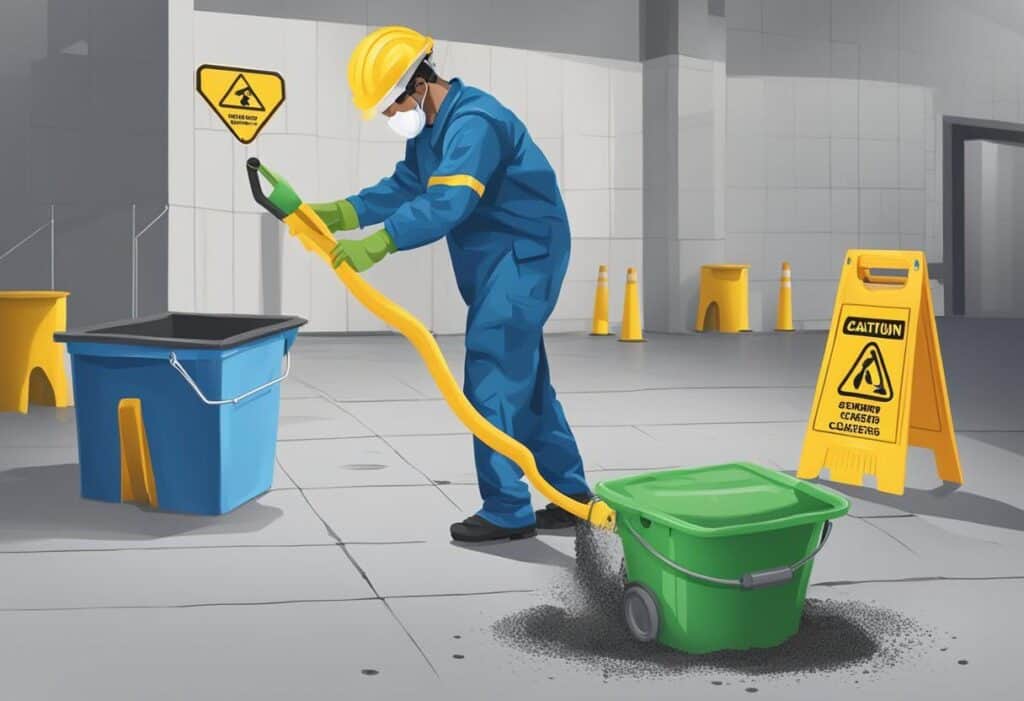
Preparing the Area
Before using any concrete floor cleaner, it is important to prepare the area properly. This will ensure that the cleaning process is effective and safe. First, remove any furniture or objects from the area that you will be cleaning. This will allow you to clean the entire floor surface without any obstructions.
Next, sweep or vacuum the area to remove any loose dirt or debris. This will prevent the cleaner from spreading the dirt around and making the cleaning process more difficult. If there are any stains or spills on the floor, pre-treat them with a stain remover before using the cleaner.
Safety Equipment
It is important to wear the right safety gear when using a concrete floor cleaner to keep yourself safe. This has safety glasses, gloves, and a breathing mask. Gloves will protect your hands from any chemicals in the cleaner, while safety goggles will prevent any splashes or sprays from getting into your eyes. A respirator mask will protect your lungs from any fumes or dust that may be released during the cleaning process.
In addition to wearing safety equipment, make sure to read the label on the cleaner before using it. This will ensure that you understand any hazards associated with the product and how to use it safely. If you have any questions or concerns about using the cleaner, contact the manufacturer or a professional cleaner for advice.
By taking the proper preparation and safety measures, you can ensure that your concrete floor cleaning project is safe and effective.
Application Techniques
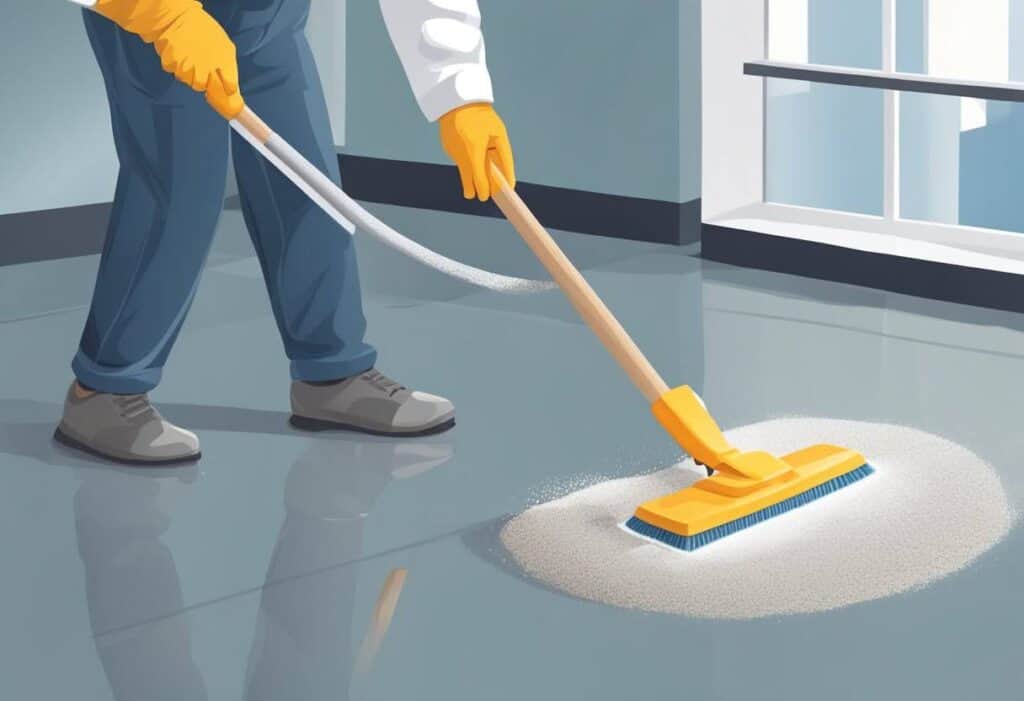
When it comes to cleaning concrete floors, there are two main application techniques: manual cleaning methods and mechanical cleaning equipment.
Manual Cleaning Methods
Manual cleaning methods involve using a mop, bucket, and elbow grease to clean the concrete floor. This technique is best suited for small areas or for spot cleaning. Here are some tips to help you get the most out of your manual cleaning method:
- Use a clean mop head and bucket of water mixed with the appropriate amount of concrete floor cleaner.
- Start cleaning from the farthest corner of the room and work your way towards the door.
- Use a scrub brush or stiff bristle broom to agitate the cleaner and remove any stubborn stains or dirt.
- Rinse the mop head frequently to avoid spreading dirt and grime around the floor.
- Change the water in the bucket frequently to ensure that you are always using clean water.
Mechanical Cleaning Equipment
Mechanical cleaning equipment includes floor scrubbers, pressure washers, and steam cleaners. This technique is best suited for large areas or for deep cleaning. Here are some tips to help you get the most out of your mechanical cleaning equipment:
- Follow the manufacturer’s instructions carefully when using any mechanical cleaning equipment.
- Use the appropriate cleaning solution for your machine to ensure that you get the best results.
- Start cleaning from the farthest corner of the room and work your way towards the door.
- Use overlapping passes to ensure that you cover the entire area.
- Rinse the floor thoroughly after cleaning to remove any leftover cleaning solution.
By following these application techniques, you can ensure that your concrete floors are clean and well-maintained.
Stain Removal Tips
When it comes to cleaning concrete floors, removing stains can be a challenge. Here are some tips to help you tackle common stains:
Oil and Grease Stains
Oil and grease stains can be tough to remove, but with the right products and techniques, you can get rid of them. Here’s what you can do:
- First, blot up any excess oil or grease with a paper towel or rag.
- Sprinkle some baking soda or cornstarch on the stain and let it sit for 15-20 minutes.
- Use a stiff-bristled brush to scrub the stain, then rinse with water.
- If the stain is still there, apply a degreaser and let it sit for a few minutes before scrubbing and rinsing again.
Rust Stains
Rust stains can be unsightly, but they can be removed with the right tools and products. Here’s what you can do:
- Apply a rust remover to the stain and let it sit for 10-15 minutes.
- Use a scrub brush to agitate the stain, then rinse with water.
- If the stain is still there, repeat the process until it’s gone.
Paint and Coating Removal
If you’re dealing with paint or other coatings on your concrete floor, here’s what you can do:
- Use a scraper or putty knife to remove as much of the paint or coating as possible.
- Apply a paint stripper or coating remover to the remaining stain and let it sit for the recommended amount of time.
- Use a scrub brush or pressure washer to remove the stain, then rinse with water.
By following these tips, you can effectively remove stains from your concrete floors and keep them looking clean and well-maintained.
Maintenance and Regular Cleaning
Maintaining and regularly cleaning your concrete floors is essential to keep them looking their best and to extend their lifespan. Here are some tips to help you keep your concrete floors clean and well-maintained.
Daily Maintenance Tips
- Perform daily sweeping or vacuuming of your floors to eliminate dirt and debris that may cause surface scratches on the concrete.
- Use a damp mop to clean up spills and stains as soon as possible to prevent them from setting in. Avoid using harsh chemicals or abrasive cleaners that can damage the surface of the concrete.
- Use floor mats or rugs in high-traffic areas to help prevent dirt and debris from being tracked onto the floors.
- Avoid dragging heavy furniture or equipment across the concrete floors, as this can leave scratches and scuffs.
Periodic Deep Cleaning
- Use a mild, pH-neutral cleaner to deep clean your concrete floors periodically. Avoid using acidic or alkaline cleaners that can damage the surface of the concrete.
- Apply the cleaner to the floor according to the manufacturer’s instructions, and allow it to sit for the recommended amount of time before scrubbing with a soft-bristled brush or floor machine.
- Rinse the floor thoroughly with clean water to remove any remaining cleaner residue.
- Allow the floor to dry completely before walking on it or replacing furniture.
By following these maintenance and cleaning tips, you can keep your concrete floors looking their best and extend their lifespan. With a little bit of effort and regular care, your concrete floors will remain a beautiful and durable flooring option for years to come.
Concrete Floor Cleaner Products
When it comes to cleaning concrete floors, there are a variety of products available on the market. Here are two categories of concrete floor cleaners you may want to consider:
Commercial Cleaners
Commercial concrete floor cleaners are designed for heavy-duty cleaning. They are often used in industrial settings, such as factories and warehouses. These cleaners are designed to remove tough stains, grease, and oil from concrete floors.
One popular commercial cleaner is the Simple Green Concrete and Driveway Cleaner. This product is biodegradable, non-toxic, and non-flammable. It is safe to use on all concrete surfaces, including driveways, sidewalks, and garage floors.
Another popular commercial cleaner is the Zep Heavy-Duty Concrete and Masonry Cleaner. This product is designed to remove oil, grease, and dirt from concrete surfaces. It is also effective in removing rust stains from concrete.
Eco-Friendly Options
If you are looking for an eco-friendly option, there are several products available that are safe for the environment. These products are made from natural ingredients and do not contain harsh chemicals.
One eco-friendly option is the Simple Green All-Purpose Cleaner. This product is non-toxic, biodegradable, and safe for the environment. It can be used on a variety of surfaces, including concrete floors.
Another eco-friendly option is the Seventh Generation All-Purpose Cleaner. This product is made from natural ingredients and is free from harsh chemicals. It is safe to use on all surfaces, including concrete floors.
When choosing a concrete floor cleaner, it is important to consider your specific needs. Whether you need a heavy-duty cleaner for industrial settings or an eco-friendly option for your home, there are a variety of products available to meet your needs.
DIY Concrete Floor Cleaner Recipes
If you’re looking for a cost-effective and eco-friendly way to clean your concrete floors, then DIY concrete floor cleaner recipes are the way to go. Here are a few recipes that you can make at home using simple ingredients.
Recipe 1: Vinegar and Water
Combine equal proportions of white vinegar and water in a spray bottle. Spray the solution onto the concrete floor and let it sit for a few minutes. Scrub the floor with a stiff-bristled brush and rinse it with clean water. This solution is effective in removing dirt, stains, and grime.
Recipe 2: Baking Soda and Water
Add 1/2 cup of baking soda to 1 gallon of warm water and mix it well. Apply the solution to the concrete floor and let it sit for 5-10 minutes. Scrub the floor with a brush and rinse it with clean water. This solution is great for removing tough stains and grease.
Recipe 3: Lemon Juice and Water
Mix 1/4 cup of lemon juice with 1 gallon of warm water. Apply the solution to the concrete floor and let it sit for 5-10 minutes. Scrub the floor with a brush and rinse it with clean water. This solution is effective in removing stains and giving your floor a fresh scent.
Recipe 4: Hydrogen Peroxide and Baking Soda
Mix 1/2 cup of hydrogen peroxide with 1 cup of baking soda to form a paste. Apply the paste to the stained area and let it sit for 5-10 minutes. Scrub the area with a brush and rinse it with clean water. This solution is great for removing tough stains and brightening up your concrete floor.
In conclusion, these DIY concrete floor cleaner recipes are simple, effective, and affordable. You can use them to keep your concrete floors clean and shiny without having to spend a lot of money on commercial cleaners.
Troubleshooting Common Issues
If you’re experiencing issues with your concrete floor cleaner, there are a few common problems you may encounter. Here are some troubleshooting tips to help you resolve these issues quickly and easily.
Residue and Efflorescence
If you notice a white, powdery residue on your concrete floor after cleaning, you may be dealing with efflorescence. This is a common problem that occurs when water evaporates from the surface of the concrete, leaving behind salt deposits.
To remove efflorescence, use a solution of muriatic acid and water. Be sure to wear protective gloves and goggles, and follow the manufacturer’s instructions carefully. Rinse the area thoroughly with water after cleaning to remove any remaining residue.
If you’re experiencing residue from your cleaner, it may be due to using too much product or not rinsing the floor thoroughly enough. To avoid this issue, be sure to follow the manufacturer’s instructions carefully and rinse the floor thoroughly after cleaning.
Discoloration and Streaking
If your concrete floor is discolored or streaky after cleaning, it may be due to using the wrong type of cleaner. Be sure to use a cleaner that is specifically designed for use on concrete floors.
If you’re still experiencing discoloration or streaking, it may be due to hard water or mineral buildup. To remove these deposits, use a solution of vinegar and water. Be sure to rinse the area thoroughly after cleaning to remove any remaining residue.
In conclusion, by following these troubleshooting tips, you can quickly and easily resolve common issues with your concrete floor cleaner. Remember to always follow the manufacturer’s instructions carefully and take appropriate safety precautions when using cleaning products.
Professional Cleaning Services
If you are looking for a thorough and efficient way to clean your concrete floors, professional cleaning services may be the way to go. These services are typically offered by experienced and well-trained cleaning professionals who have access to specialized equipment and cleaning solutions.
One of the main benefits of using a professional cleaning service is that they can save you time and effort. Instead of spending hours scrubbing and cleaning your floors yourself, you can simply hire a professional to do the job for you. This can be especially helpful if you have a large area to clean or if you are short on time.
Another advantage of using a professional cleaning service is that they can often achieve better results than you could on your own. This is because they have access to specialized equipment and cleaning solutions that are designed to remove even the toughest stains and dirt from concrete floors.
When choosing a professional cleaning service, it is important to do your research and choose a company that has a good reputation and a track record of providing high-quality service. You may also want to consider factors such as cost, availability, and the types of services offered.
Overall, if you want to ensure that your concrete floors are clean, well-maintained, and free of dirt and stains, hiring a professional cleaning service may be the best option for you.
